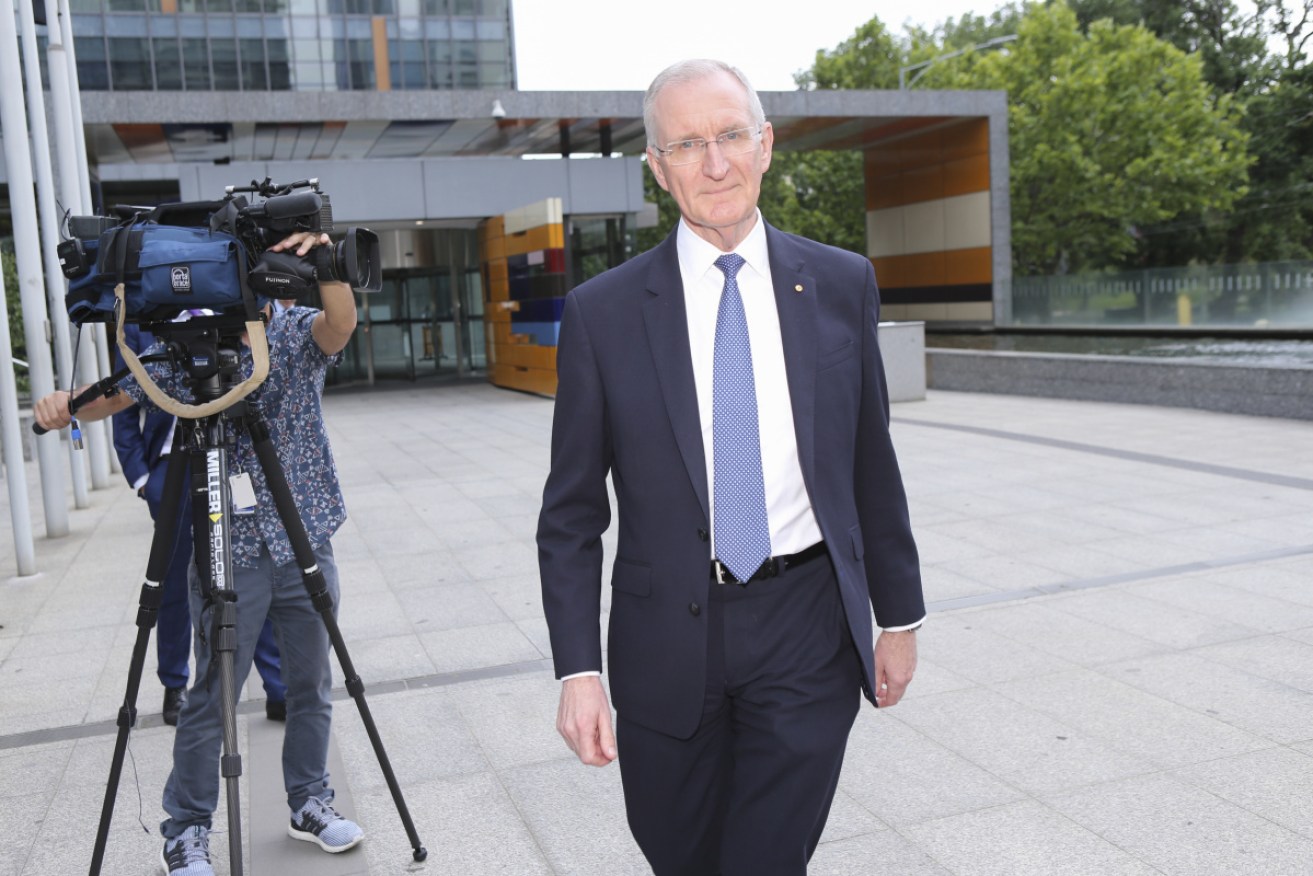AMP admits it could have another fee for no service scam on its hands


AMP's acting CEO Mike Wilkins leaves the Banking Royal Commission in Melbourne on Tuesday. Photo: AAP
Financial group AMP has told the financial services royal commission it could have another fee for no service scandal on its hands just months after previous revelations of the practice resulted in the sacking of its chair and CEO.
Acting CEO Mike Wilkins told the commission on Tuesday the group was currently going through details of employer-sponsored superannuation plans back to 2008 to check whether they had involved charging members fees for service not provided by advisers.
The investigation is being done by consultants PricewaterhouseCoopers.
Initial inquiries have already found breaches, spurring counsel assisting Michael Hodge QC to observe “there are policy and control gaps in the management and monitoring of fees charged to workplace super members and for fees received by AMP advisers”.

AMP is investigating super plans going back to 2008. Photo: AAP
When Mr Wilkins agreed with that, Mr Hodge asked “Is the risk that AMP faces in relation to this that it may have another fees for no service case on its hands?”
“Yes,” Mr Wilkins replied and he added the concerns had been passed on to the Australian Securities and Investments Commission.
“And do you have a view as to how it is that AMP has allowed itself and its trustees to be exposed to this risk?” Mr Hodge asked.
“We are still going through the process of understanding this,” Mr Wilkins replied.
The practice of fee for no service was held up to the microscope by Mr Hodge. “Outside of financial advisers, it’s hard to think of any profession or group of people that think if they charge money for a service, it’s OK not to provide the service.”
Big costs loom for breaches
The bills are mounting up for AMP since the commission uncovered a range of legal breaches earlier in the year.
Mr Wilkins said there were 150 staff working on the issue and it estimated it would spend $778 million remediating clients for the breaches over the next three years.
The commission also heard that AMP had been the biggest relative sinner in the shonky advice department.
Some 9 per cent of its planners have been banned for misconduct with its nearest rival, Commonwealth Bank, having had 5 per cent of its planners banned.
AMP had continued to pay advisers trailing commissions on financial plans put in place before the Future of Financial Advice laws banned the practice from July 2013.
News of that surprised Mr Hodge, who said that “surely by now those advisers who are actually providing a service in exchange for fees have switched from grandfathered commissions?”
Mr Wilkins said that was not the case but could not say how many grandfathered commission arrangements remained in place. It could take another three years to unwind remaining grandfathered commissions if AMP went down that path, he said.
“Almost eight years have now passed since the industry was first consulted about the FOFA reforms … how can it really be that more time is needed to implement the required changes?” Mr Hodge asked.
Advisers should be independent
Mr Hodge questioned the practice of financial advisers being licensed by firms like AMP or its relationship dealers, rather than acting as individuals.
“Why wouldn’t they be like doctors and engineers and lawyers and accountants … have individual licensing and a regulatory body … that is responsible for disciplining them?” Mr Hodge asked.
“My personal view is that’s probably an overly bureaucratic solution,” Mr Wilkins said.
AMP was spending $100 million to ensure that its incentives and business management arrangements did not benefit the company and advisers at the expense of clients.
“I think there is some evidence of the fact that we have preferred short-term performance over making appropriate investments for the longer term,” Mr Wilkins said.








